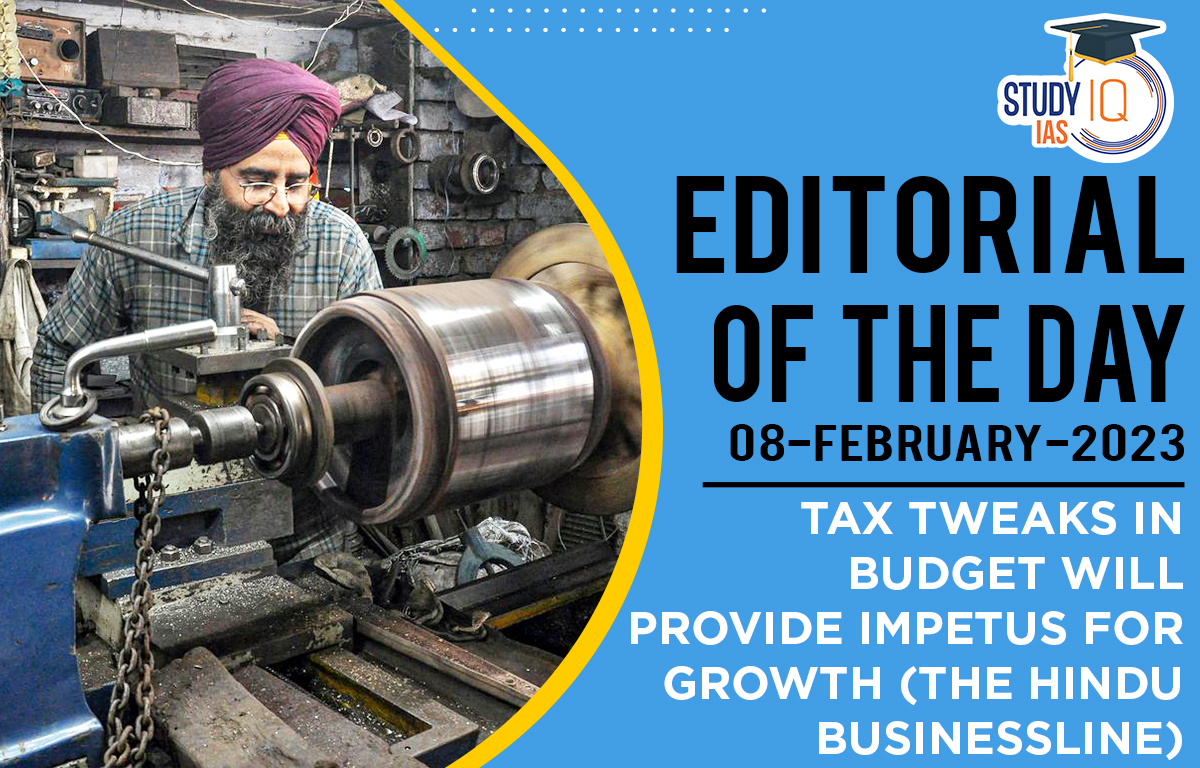Table of Contents
Context of the Article: The Budget 2023 presents a solid roadmap for India’s growth trajectory with guiding principles set around inclusive and sustained growth.
Author’s Views on Taxation
- Tax buoyancy: Formalisation of the economy, implementation of GST, and digitalisation have been major drivers of tax buoyancy — both indirect tax and GST collections.
- Rationalising tax: The new income tax regime announced in 2020 is now the default tax regime, with a clear intent to reduce exemptions/deductions while rationalizing tax rates.
- The new slab rates, increase in rebate thresholds and lowering of surcharge for High Net Worth Individuals are available only under the new regime.
New Changes in the Tax Regime
- Deductions: Standard deductions and deductions for family pensions are now extended to the new regime. However, taxpayers can continue to opt for the old regime.
- Tax exemptions: Tax exemption on reinvestment of capital gains into the residential property will be capped at Rs 10 crore and life insurance policies (other than Unit Linked Insurance Plans) issued after April 1, 2023, where annual premium exceeds Rs 5 lakhs will now not be eligible for exemption and will be taxable as income from other sources.
- Short-term capital gains tax: Income from market-linked debentures, irrespective of the period of holding, is now proposed to be taxed as short-term capital gains.
- There is a concessional tax rate of 5 per cent on interest on ECBs, rupee-denominated bonds, and debt investments by FPIs.
- Taxation for start-ups: The period of incorporation of eligible start-ups to claim the tax deduction is extended up to April 1, 2024.
- The period for carrying forward eligible losses of start-ups has been extended to 10 years.
- Private companies, including start-ups, while raising capital from foreign investors, will also now need to be mindful of the fair value to avoid tax implications.
- Customs tax: Basic Customs duty has been reduced for certain products used for manufacture in India. This will solidify India’s presence in the global supply chain.
Conclusion
- This is a growth-oriented budget with a focus on both infrastructure and job creation while reducing income tax for pretty much everyone.
- The Budget would support growth and the Indian consumption story, and keep us in good stead, given global headwinds in China and developed markets.


 SSC CGL Exam 2025 Apply Online Starts Ap...
SSC CGL Exam 2025 Apply Online Starts Ap...
 Daily Quiz 19 April 2025
Daily Quiz 19 April 2025
 Vehicle-to-Grid (V2G) Technology and its...
Vehicle-to-Grid (V2G) Technology and its...





















